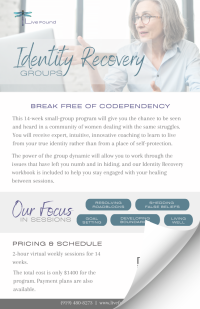So That’s Why!
Alright, let’s talk about something that is rarely learned prior to going into adulthood; but literally explains everything about why relationships can be so messy: attachment styles.
Ever wonder why you overthink texts, get anxious when people don’t reply fast enough, or feel weirdly distant in relationships? It’s not just you, your attachment style (a.k.a. the way you learned to connect with people growing up) has a huge impact on how you do friendships, dating, and even family relationships.
If your parents were super supportive and emotionally present, relationships might feel pretty natural to you. But if they were distant, unpredictable, or super critical, then yeah, relationships might feel like walking through a minefield. You might:
- Feel anxious in relationships and constantly worrying if people like you.
- Push people away, because depending on others feels risky.
- Flip between both craving connections but also freaking out when things get too close.
So, let’s break it down: what’s your attachment style, and how is it messing with your relationships?
Anxious Attachment: Why You Overthink Everything
If you grew up with parents who were inconsistent sometimes loving, sometimes distant you may have developed an anxious attachment. This means you constantly worry about being abandoned and feel like you have to work extra hard to keep people close.
🚨 Signs You Have Anxious Attachment:
- You need constant reassurance; one unread text and you’re spiraling.
- You take everything personally; if a friend seems “off,” you assume they’re mad at you.
- You struggle with being alone; no plans = instant existential crisis.
- Conflict feels terrifying, even small disagreements feel like the end of the world.
Because of this, you might find yourself people-pleasing, over-apologizing, or doing way too much emotional labor in relationships just to make sure no one leaves. And girl, that is exhausting.
Avoidant Attachment: Why You Push People Away
If your parents were emotionally unavailable, super critical, or made you feel like emotions were too much, you might have developed avoidant attachment—a.k.a. the “I don’t need anyone” energy.
🚨 Signs You Have Avoidant Attachment:
- You feel uncomfortable getting too close to people.
- You hate feeling “needy,” so you pretend you’re fine—even when you’re not.
- You bottle up emotions instead of expressing them.
- You expect people to leave, so you push them away first.
At first, staying distant seems like the safe choice. But over time, it can leave you feeling disconnected, lonely, and craving real connection, even if you won’t admit it.
Fearful-Avoidant Attachment: The Emotional Rollercoaster
Maybe your childhood was unpredictable; sometimes loving, sometimes neglectful, maybe even a little chaotic. If that’s the case, you might have a fearful-avoidant (a.k.a. disorganized) attachment style—where you crave connection but also fear it.
🚨 Signs You Have Fearful-Avoidant Attachment:
- You want love but are scared of getting hurt.
- You get super close to people… then suddenly need space.
- You second-guess people’s intentions—Do they really care?
- You feel emotionally exhausted by relationships.
This attachment style can be so confusing; you want deep connections, but they also feel overwhelming, so you bounce between clinging to people and pushing them away.
Secure Attachment: The Goal
If you have a secure attachment style, congrats, you’ve unlocked the healthy relationship cheat code! 🚀 This means:
✅ You feel safe in relationships.
✅ You trust people but also have boundaries.
✅ You don’t stress about being abandoned or getting too close.
✅ You communicate your needs without fear.
And the best part? Even if you don’t have a secure attachment style right now, you can work toward it by learning to set boundaries, build trust, and surround yourself with safe, supportive people.
How This Plays Out in Real Life
Parents: Where It All Started
Let’s be real—our attachment styles start with our parents. If they were emotionally unavailable, distant, or too busy, it might explain why you struggle with relationships now. You might feel like:
- They never really “saw” you, so you try to prove yourself in relationships.
- You had to be perfect to get love, so now you’re terrified of making mistakes.
- They didn’t express emotions, so now you struggle to open up.
Healing means recognizing that you deserved love and support even if your parents couldn’t give it to you in the way you needed.
Boyfriends: Attachment Styles in Dating
Ever notice how some relationships make you feel secure while others send you into a spiral of overthinking? That’s your attachment style at work.
- Anxious Attachment? You might cling to partners, overthink texts, and feel like you have to earn love.
- Avoidant Attachment? You might push away good relationships and struggle with emotional intimacy.
- Fearful-Avoidant? You might jump between craving love and fearing it, leading to emotional whiplash.
Knowing your attachment style can help you break toxic patterns and find relationships where you feel safe, valued, and respected.
Siblings & Friends: Same Story, Different Characters
Sibling drama? Friendship struggles? Yep—attachment styles also affect these relationships. If you:
- Worry your friends secretly hate you → Anxious attachment.
- Keep your guard up & avoid deep convos → Avoidant attachment.
- Feel super close, then suddenly distant → Fearful-avoidant attachment.
Good news? You can change these patterns! Healing starts with understanding your attachment style and learning healthier ways to connect.
How to Heal & Build Secure Relationships
Whether it’s friendships, dating, or family, here’s how to ditch the stress and build real, healthy connections:
1️. Recognize Your Patterns → Are you anxious, avoidant, or stuck in between? Self-awareness is key!
2️. Challenge Your Fears → Not everyone will leave or hurt you. Some people are safe.
3️. Set Healthy Boundaries → You don’t have to prove your worth. Your needs matter.
4️. Surround Yourself with Safe People → Find friends who respect and support you.
5️. Heal Through God’s Love → Your worth isn’t in relationships, likes, or grades. God already calls you enough.
Final Thoughts
If you’ve been struggling with relationships, feeling anxious, or wondering why things feel so complicated—you’re not alone. Your attachment style plays a huge role in how you connect with people, and the good news is you can heal.
Your worth is not based on who stays, who leaves, or how many likes you get. You are already loved, valued, and enough. ❤️
So, take a deep breath. Let’s start healing. And remember—you are worthy of safe, healthy love.
See you in the next blog! 😉




